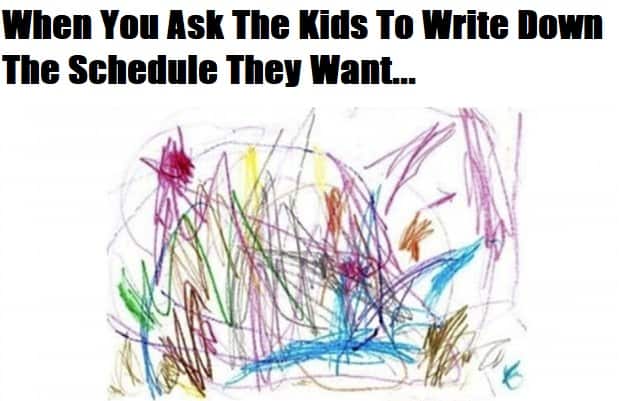As a parent, it is your job to ensure that your child is safe and happy. Sometimes, becoming a caregiver can be daunting, especially if you have not been raised in a household where love was expressed freely.
As a result of not having the necessary guidance as a child, you may find yourself struggling with your emotions as they arise from time to time. Difficulty regulating anger can sometimes lead to an outburst, which you will later regret.
Parenting is often described as the most rewarding experience one can have in their lifetime, however, it can also be very difficult at times. Of course, every child is unique and so are the challenges that come with parenting them.
It is not uncommon for parents to experience conflict with their children, but there are ways to address these conflicts without resorting to anger or violence.
You can avoid many of the challenges associated with being a parent by learning positive parenting techniques .
Positive Parenting is an approach that focuses on “positive” reinforcement in order to raise happy and healthy children.
It focuses on rewarding the good behavior of the child and ignoring or redirecting negative behavior. It can sometimes be difficult to ignore negative behaviors, but if you can, while rewarding positive behaviors, your child will learn what they need to do in order to get what they want.
If you find it difficult to focus on your child during a moment of misbehavior, sit outside their room until they calm down and try to talk through the situation with them calmly when they are ready.
Never give into demands – sometimes this will only reinforce their bad behavior – and always follow through on consequences that have been laid out. When you can, be enthusiastic about your praise and rewards – children respond much better to a reward that is actually worth something to them.
The following steps will help you learn how to implement positive parenting techniques.
Set Limits with Respect
In order for change in behavior to take place, limits must first be established. Begin by telling your child what you will allow them to do, but be sure to stick to this rule.
Each time you are forced to correct the behavior of your child, they must understand why their actions are not okay. Your children should know that if they cannot behave in a certain way, there are consequences for their actions.
Reward Appropriate Behavior
Once you have set limits with your child, you can begin rewarding their appropriate behavior. When your child engages in the desired behavior, praise them immediately and follow through on any promises that were made.
The more often they are praised for their good behavior, the better it will be for all of you. You will eventually notice that your child’s bad behavior has all but disappeared.
Ignore Bad Behavior
As hard as it may be, you must learn to ignore bad behavior in order for positive parenting techniques to work. Remember that children often act out when they are ignored or bored.
If your attention is focused on the negative, you are reinforcing that behavior. When your child’s negative behavior begins, wait until their attention is focused on something else to acknowledge them.
If they continue with the bad behavior after ignoring it briefly, remove yourself from the situation or tell your child to do so if they can act appropriately on their own.
Find Alternatives for Punishment
If the behavior of your child is extreme, such as hurting others or destroying property, you should not ignore it. Determine an alternative plan for punishment that does not involve any form of violence.
For example, you can take away a privilege or remove something they enjoy for a specific amount of time. You can also work out a system where your child’s bad behavior has consequences at home, but not in public.
Value Your Child’s Input
When it comes to discipline, be sure to include your child in the process. By having their input when laying down rules and consequences, you are reinforcing that they are part of this family unit with everyone else.
If you feel that your child is old enough, ask them what consequences they think would be appropriate for their actions.
Don’t Give Empty Threats
If you tell your child there will be a consequence if they do not behave a certain way and the behavior continues, the threat is meaningless.
Even if it causes confrontation, you must follow through on your word. Remember that children learn by example, so make sure to stay in control of your own behavior no matter what.
Don’t Give Rewards for Good Behavior
This will only teach your child that they can behave inappropriately and still get what they want if they whine or misbehave enough. If you threaten to take away a privilege if they continue with the bad behavior, but then reward them for acting appropriately, it will only confuse them.
Be Consistent
It is important that everyone in your household use positive parenting techniques. Children are more likely to behave when rules and consequences are laid out clearly and applied in the same manner each time.
Be Prepared
If you are going to be away from your child for any length of time, make sure that someone else will be applying these techniques to them during that period. By planning ahead and talking to their caregivers about positive parenting, you can ensure that they will act appropriately when you are not around.
In Closing
Positive parenting techniques should be used by all members of the household. Over time, It will get easier, I promise.
But to be effective, you just have to start…. AND STICK WITH IT !!





